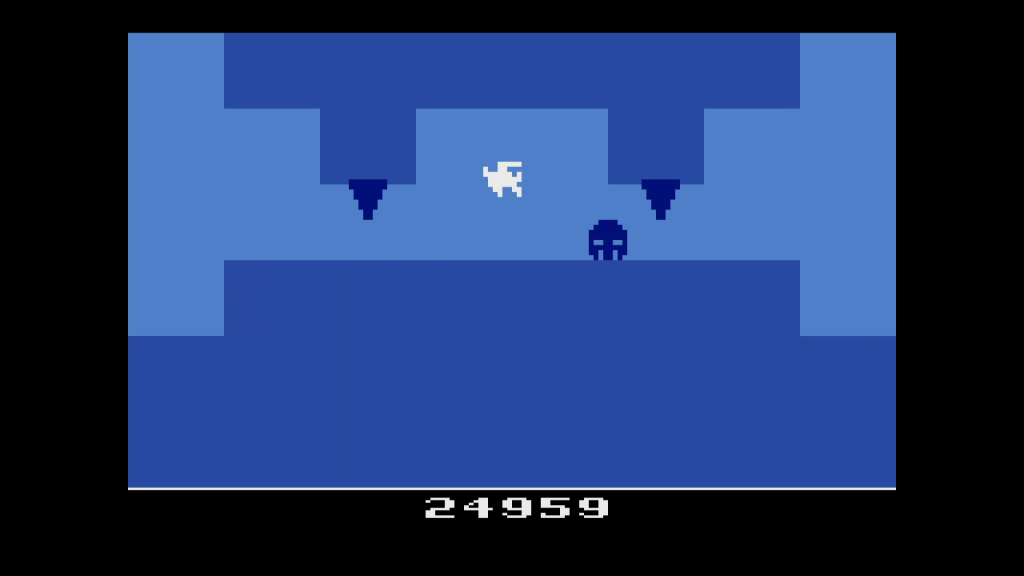
The company that currently owns the Atari name and trademarks has decided to give owners of the old Atari Video Computer System (aka the Atari 2600) something new to do. Mr. Run and Jump is a new Atari-published platformer that is coming to vintage Atari consoles in cartridge form, complete with a box and instruction manual. Preorders for the cartridge begin on July 31 for $59.99.
The version of Mr. Run and Jump coming to the 2600 is a primitive version of a much different-looking game with the same name that's coming to PCs and all major game consoles on July 25. We've got to hand it to Atari here—as a PR gambit for a new game, porting a rough version of your game to a 46-year-old game console and then giving it a physical release complete with box and manual is pretty good.
Atari is billing this release as "the first 2600 cartridge launch for a new Atari title since 1990," though there have also been some limited-run cartridge releases for games like 2005's Yars' Return. There were also a few new 2600-inspired games and remakes, including Vctr Sctr, in Atari's 50th-anniversary collection, which also got a physical release on modern consoles.

Although modern game development for the 2600, NES, Game Boy, and other retro consoles are mostly the provenance of homebrew developers working in emulators, physical cartridge releases aren't uncommon. Limited Run Games and other independent and crowdfunded outfits have released plenty of physical cartridges for old consoles, including a Smash Bros-style NES game that includes a Wi-Fi chip to support online play.
To avoid the problem of unsold inventory—something the old Atari had some experience with—most of these physical releases go up for preorder, and then the company makes roughly as many cartridges as it has preorders for. That seems to be the route that Atari is using for the Mr. Run and Jump release.
Atari but not Atari
Today's Atari has absolutely nothing to do with the company that launched the Atari VCS in 1977, and the brand's history and ownership defies an easy summary. After the video game crash in 1983, the old Atari was split into two divisions by parent company Warner Communications and sold. Atari Games continued the arcade business, and Atari Corporation controlled home console releases.
Atari Corporation took a few unsuccessful stabs at the console market in the late '80s and early '90s with consoles like the Jaguar and the Lynx. It ultimately merged with a now-defunct manufacturer of unreliable hard drives in 1996 before being sold to Hasbro Interactive in 1998. Hasbro was bought by Infogrames Entertainment in 2001, which dropped the "Infogrames" name in favor of "Atari" in 2009. That company's US operations, already many degrees removed from the original Atari, filed for bankruptcy in 2013. The company that emerged is the one that's still operating as "Atari" today, and it's linked to the old company by its name and its trademarks and not much else.
This version of Atari primarily focuses on nostalgia plays, like this 50th-anniversary collection, physical reissues of the most famous Atari 2600 games, or this $300 Ryzen-based mini PC-slash-retro console. The company's focus in 2023 has been on acquiring defunct IP for re-releases and potential sequels.
The company has also engaged in other less-savory activities, like making legal threats against other developers, entering the "social casino" gaming market, and a non-specific commitment to blockchain-based technologies. The official Twitter account for this “Atari X” initiative tweeted once about an NFT in September 2022 and has been silent since; it has 13 followers.
reader comments
112